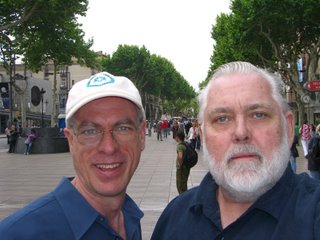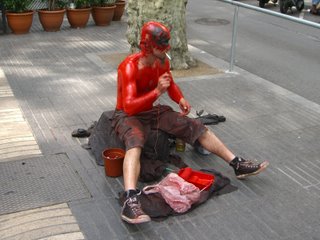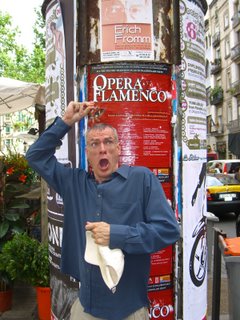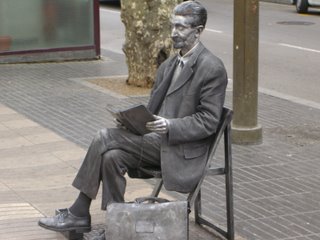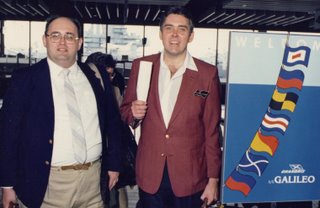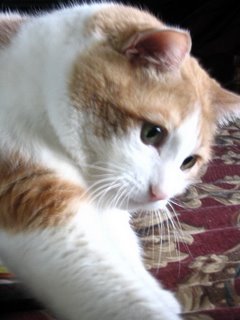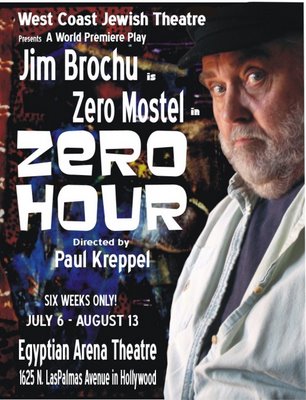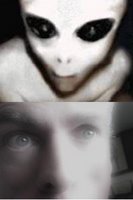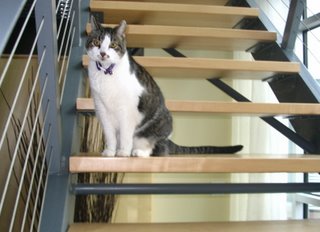"I received...my first shipment of Crixivan--the new, even more potent protease inhibitor. I was thrilled, but it does come with some tough rules. First of all, I have to take it on an empty stomach three times a day--every eight hours, and I can't eat for a full hour after taking it. But I also have to take Saquinavir three times a day on a full stomach.Since I was already been taking a different experimental medication, Saquinavir, it's really interesting to me now to note, looking back, how unremarkable my diary entry is about this one. But of course! How could we know that this one was going to be any different from any of the others? None of them were helping me so far, so I made little note of it except to say that it arrived and that it was going to be a total pain in the ass to take.
"Now let's see... if I take the Crixivan at 6, 2, and 10, then I'd have to eat (and take the Saquinavir) at 7, 3 and 11. LUNCH AT 3? Dinner at 11? But I suppose I could eat lunch at 12, take a snack at 3 with the Saquinavir, dinner at 7, Crixivan at 10, and eat a snack with the Saquinavir at 11...
"The Pharmacy also included a little form to fill out to report to them if I'm late or if I miss a dose. This means I should carry around a couple of doses in the car with me just in case I get stranded somewhere.
A little background: Crixivan was the newest and most potent drug for AIDS. It was having remarkable success in the early testing. So much success that they decided--thanks to the pressure of groups like ACT-UP--to fast track it to the market and bypass the normal testing procedure. Until Crixivan came along, people were dying by the hundreds every week. The newspapers in the larger cities were filled DAILY with columns of obituaries of dead gay men like myself.
It was a Holocaust. An entire generation of gay men were literally wiped off the face of the earth, and I was next in line. Many straight people were still unaware of what it meant, but an individual could lose 30, 40, 50, 100 of their friends almost overnight. Reader, picture your circle of friends as you read this. See their faces. Now imagine all of them dying before your eyes. Imagine yourself attending funerals on a WEEKLY basis. That was the REALITY of AIDS in the United States 10, 15, 20, 25 years ago.
Now, imagine that all of this is happening around you and it's barely mentioned in the press or by the President. La di da. All your friends dying. La di da. This is the rage that powered ACT-UP and Mobilization Against AIDS; people like my friend Ken McPherson who, out of compassion and desperation to see something being done, dropped his entire life to move to San Francisco and stand on a street corner behind a folding table handing out literature, form candlelight marches and protest loudly to get someone, somewhere to NOTICE.
But you see, we were invisible. We were just faggots in San Francisco, LA and New York. The Jerry Falwells and the Pat Robertsons were telling their congregrations that we deserved this disease and that we should be left to die. They were using their political power to make sure the government paid as little attention to the problem as possible. From their lofty pulpits of power, they pronounced US immoral, forgetting that Jesus stayed down in the trenches with the sick, the dying, the lepers and the poor. (And they wonder why so many people see them as clowns and hypocrites.)
Looking back, though, 10 years ago, I was just trying to make it from one day to the next. Several other things happened on May 20. Al Martinez featured me and my music in the L.A. Times. It marked my first appearance in the press. A beautiful article called "Just One More Song." He wrote:
"I have Schalchlin's music playing in the background as a reminder of both the haunting quality of his melodies and the impact of his words. It plays upon a corner of the mind like a child's whisper...I heard about Schalchlin through a message on the Internet that described both the man's talent and his struggle with acquired immune deficiency syndrome. He was yet one more gifted artist spinning down into an abyss of choking darkness.
"It has been weeks since I interviewed Schalchlin. I didn't use his story immediately because I have written so much about AIDS and its victims that I wasn't sure I wanted to write another column so soon. There is much to observe and to chronicle in a county of 9 million, and the responsibility of my observations reaches beyond those with the terrible, killing malady.
"But in the interim I spent a few days in New York, during which I saw the Broadway performance of "Rent," a magnificent rock opera about youth and AIDS and living and dying...
"Later, walking through a light rain that fell over the city, I thought about Schalchlin, about the disease that eats like acid into our world family and about the need to employ whatever means available to remind everyone of its growing presence.
"It's the reason Jonathan Larson wrote "Rent" and the reason Steve Schalchlin wrote "The Last Session" and the reason I'm writing this. Further delay is simply not possible..."
10 years later, Steve Schalchlin is still alive, but the AIDS Holocaust lives on. Medications have changed our lives here in the First World, but in Africa and other countries where money is scarce, education is spare, and people are still being fed lies and myths about AIDS, death rages on. Al Martinez's beautiful article ends with this:
"We are, after all, a family in the broad sense of the similarities that unite us, and if it takes music to alert us to a plague that threatens our house, then let the band play on.
"And let the family, for the sake of us all, listen."
